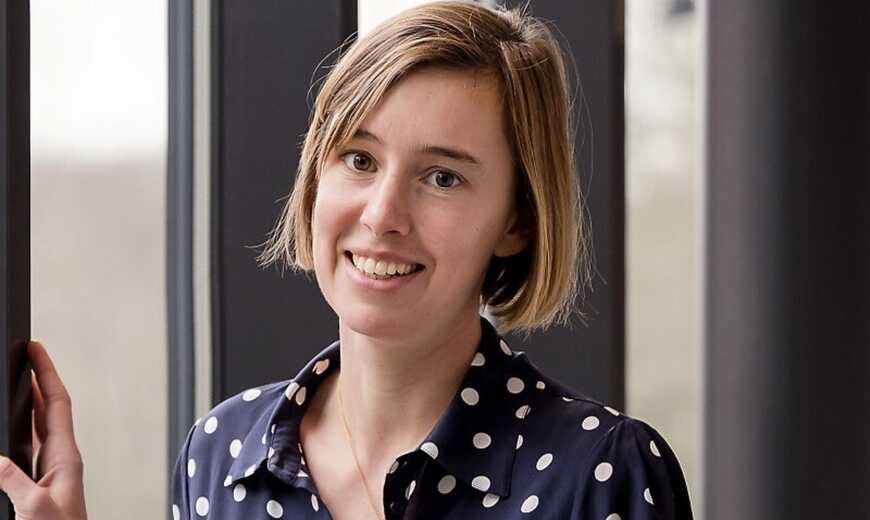Interviewer: Steve Majerus, until recently, you have been an active member of the BAPS executive committee. You were the president of this committee and also the editor of Psychologica Belgica. What have these years brought to your perspective on the Psychological Sciences in Belgium?
I have had the privilege to serve the board of BAPS for quite a few years indeed, 15 years exactly. I look back at these years with lots of good feelings. It was very stimulating to learn about the richness and variety of psychological research conducted across our different universities, to discover that the difficulties I encountered in my daily activities and research environment are shared, and to work on these issues with my esteemed colleagues of the BAPS executive committee. I am for example thinking about the diverse and sometimes conflicting research ethics approval procedures which led to the creation of a BAPS-initiated work group involving the different psychological/human sciences and biomedical ethics committees from all of our universities. I take this opportunity to remind the reader that a joint statement on ethical clearance procedures resulted from this initiative (see https://www.baps.be/news/consensus-statement-for-the-assessment-of-human-research-projects-by-biomedical-ethical-committees-mec-vs.-non-biomedical-ethics-committees-non-mec). Overall, my roles as a member, president, editor and conference organizer for the BAPS executive committee allowed me to interact with many of the wonderful researchers and excellent research teams that characterize psychological sciences in Belgium. found that psychological sciences are definitely in a very good shape despite the limited financial resources dedicated to research in our country.
Interviewer: You have been active in the field of working memory for decades now. What are your current main topics of interest?
Working memory is a very interesting research field in the sense that it is extremely rich and inventive regarding the inception of theoretical models. There aren’t so many research domains playing around with at least 20 different models (there are actually even much more!) at the same time. But this situation has also led to a certain state of theoretical confusion, especially (but not only) for researchers that do not directly work in this field. A very good example for this situation is the content of the textbooks in cognitive psychology: the main model being cited even today is the 1974 Baddeley & Hitch working memory model while there are currently a number of more plausible models from both a cognitive and a neural perspective, including by Baddeley himself. Within this theoretical conundrum, my aim is to characterize the theoretical pillars of working memory, by considering that working memory is an emergent cognitive function, resulting from the interaction of at least three core components: (1) temporary activation of information in long-term memory, (2) attentional focus and control of currently activated information, and (3) sequential coding and maintenance of this information. My research more specifically focuses at determining the cognitive and neural nature of these three components as well as their interactions that give rise to the functional concept of working memory. A central question we are currently addressing is the nature of the code(s) that allow us to maintain the serial order of a sequence of events in our mind, an aspect of working memory that is essential for many online sequential cognitive activities such as reasoning, problem solving, novel vocabulary learning, reading acquisition, instruction following, etc ….
Interviewer: Your work employs multiple approaches (neuroimaging, behavior, clinical studies) and translate into concrete clinical implications. What are the specific aims of your research about memory care strategies?
Limited capacity is a defining and natural feature of working memory, but this capacity is also very fragile, working memory deficits being observed in many different (neuro)developmental and brain damaged populations. The remediation of working memory deficits is one of the major challenges in both child and adult neuropsychological settings. Past research has shown that a one-size-fits-all strategy via computerized working memory training does not lead to significant working memory improvement, at least not in neurodevelopmental populations. I am convinced that given the complexity of processes associated with working memory and their possible selective alterations in patients, only a cognitive neuropsychological approach can lead to significant advances regarding working memory remediation and associated transfer effects in everyday life functioning. We need to get back to the cognitive neuropsychological approach that was initiated in the 1980’s with its case study approach. This approach was subsequently deemed as scientifically less interesting as a single case study does not allow for generalization of observed effects. However, the current approaches aiming at testing working memory remediation procedures in large(r) groups at the cost of even not assessing the participants’ specific nature of working memory deficits is not a solution either – recent meta-analysis have repeatedly demonstrated the null effects of such an approach, in addition of being theoretically nonsensical. Working memory training studies need to take into account the specific working memory components that are impaired and to develop and validate training procedures that target these impaired components and/or that allow for their compensation via optimized recruitment of the preserved components. Given that it is highly unlikely that in a given group of WM impaired patients, all patients will show the same (combination of) impaired processes, it is essential that a case study approach is used. I am convinced that subsequent generalization of observed effects will be possible by applying meta-analyses on these single case studies, the validity of the latter depending, however, on the possibility of publishing all case studies, even those that do would not lead to significant and transferable training effects.
Interviewer: Where is your field heading to in the future ? Are there initiatives that you are particularly excited about/have contributed to, that might shape the development of this field and of the cognitive neuroscience more generally?
A recent theoretical development in the field of working memory (and probably also other fields) is the comeback of the mathematical modelling approach (a type of approach that was prominent in the 1970s and 1980s) for making precise theoretical predictions and for testing these predictions in observed data. This is a particularly welcome development for a field characterized by so many co-existing theoretical models. The advantage of mathematical modelling approaches is that they are easier to develop and simulate than many fully implemented connectionist models. Although this approach will not give us definite answers regarding THE working model to be retained, it may prove to be an essential methodological asset for demarcating current models and for making working memory researchers converge on a fewer number of models. Another development I would like to briefly address is more a matter of concern. It is related to the domain of cognitive neuroscience which sometimes appears to be less concerned by the testing of cognitive theories, the investigation of brain processes and associated analytical or technical developments becoming the main issue. Here too, the development of precise mathematical predictions on the dynamics of neural processes as a function of specific cognitive theories may again bring closer cognitive neuroscience to cognitive research.
Interviewer: If you could go back in time and talk to yourself as you were starting your academic career, what advice would you give yourself?
In spite of your hard, critical, and criticized work, do not forget to enjoy the beauty of Science.


